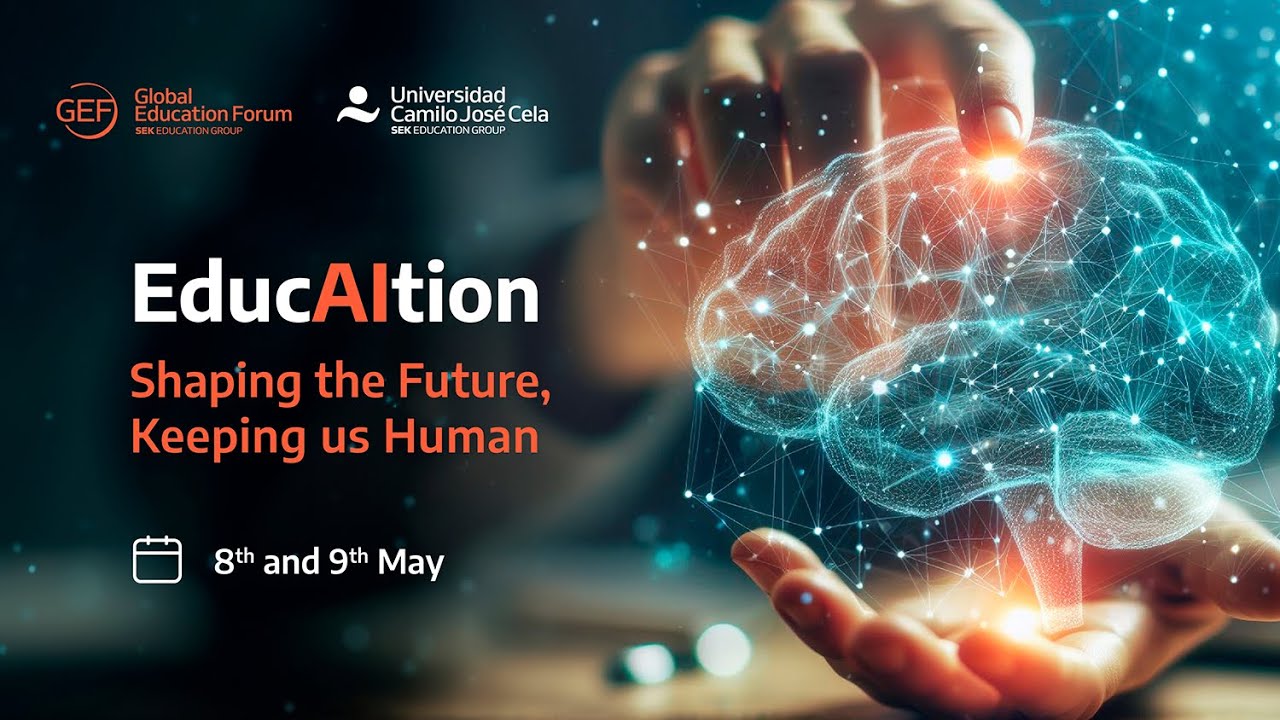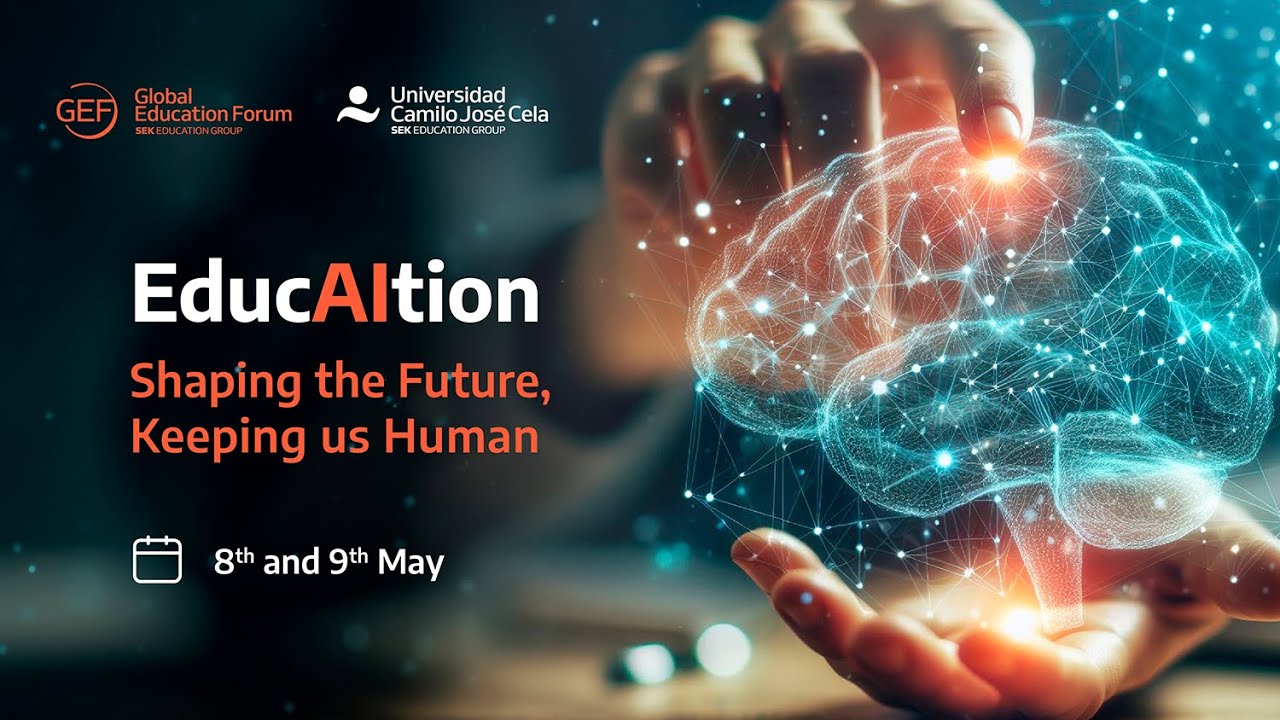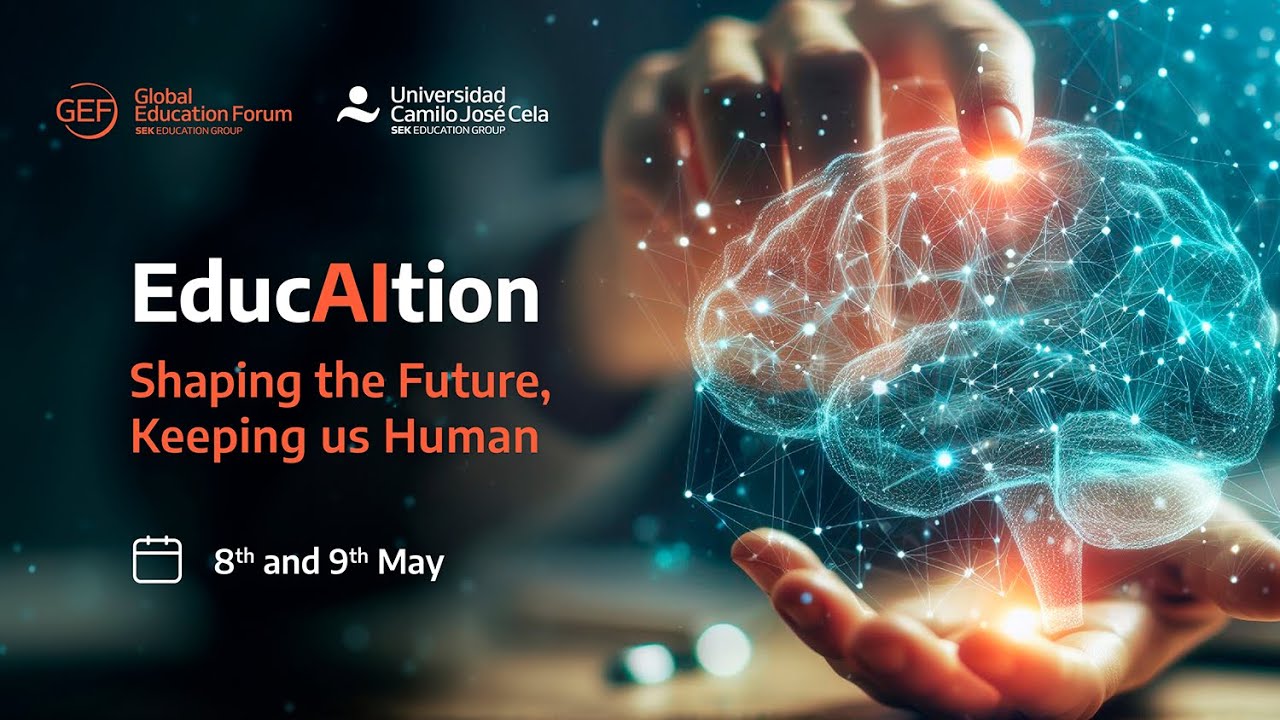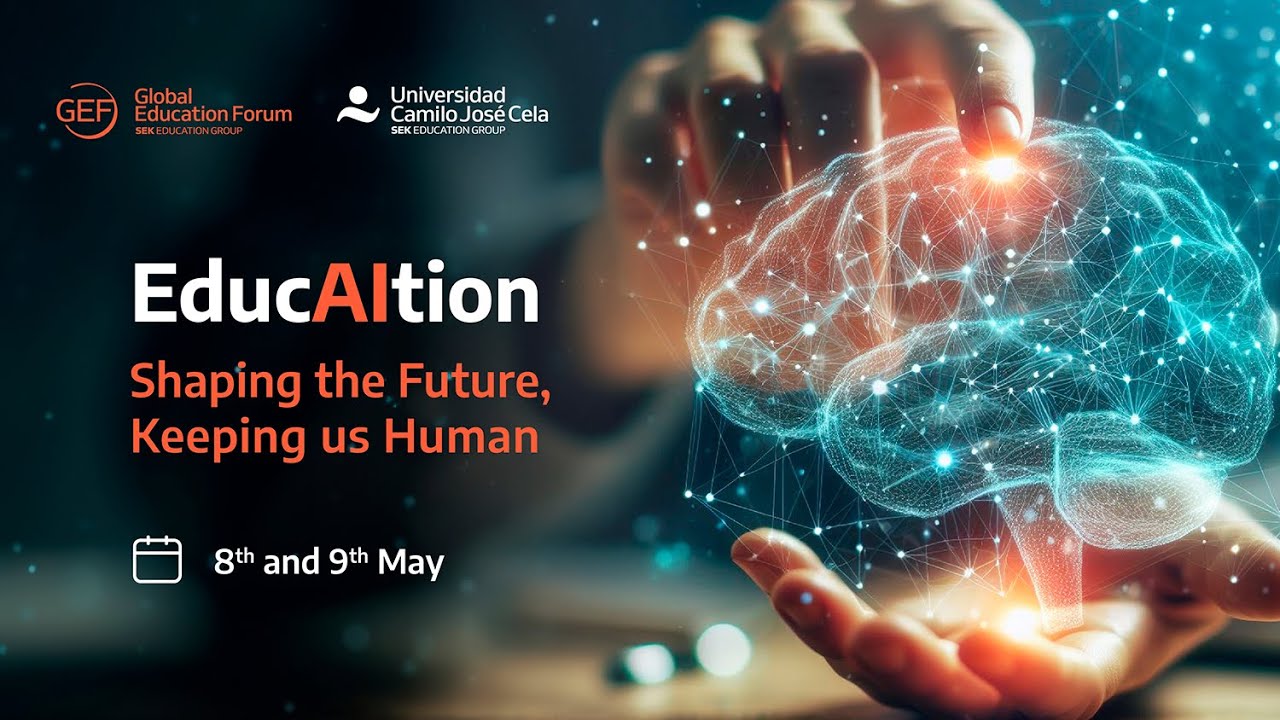GEF Madrid 2024: Reporting the Future: The Impact of AI on Education Journalism
Summary
TLDRIn a panel discussion at the Global Education Forum 2024, journalists and educators explored the impact of artificial intelligence (AI) on their fields. They addressed the potential of AI to streamline tasks like transcription and data analysis, while emphasizing the irreplaceable value of human critical thinking. Concerns were raised about AI's role in spreading misinformation and the ethical challenges it presents. The conversation underscored the need for responsible AI integration, highlighting the balance between technological advancement and preserving the essence of journalism and education.
Takeaways
- 🌐 The Global Education Forum is focusing on Artificial Intelligence (AI) and its impact on education, with a panel of journalists discussing the influence of AI on their profession.
- 🗣️ Journalists reassure students that AI will not replace the need for human critical thinking and reporting skills, emphasizing that AI currently lacks the critical thought process essential in journalism.
- 📝 AI is being utilized in journalism for tasks such as real-time transcription of press conferences, which saves time and facilitates the journalistic workflow.
- 🤖 The panelists discuss the hype surrounding AI, especially since the release of generative AI models like Chat GPT, and the importance of understanding where AI can be effectively applied.
- 🔍 There is a consensus among the journalists that AI does not possess the critical spirit or the ability to deviate from established norms, which are crucial aspects of journalism.
- 🚫 Concerns are raised about the potential for AI to propagate misinformation and the challenges it poses to the verification of information, such as deepfakes and manipulated images.
- 🛠️ AI is seen as a tool that can assist in processing large volumes of data, which could be beneficial in investigative journalism and educational research, but it is not yet fully reliable for these tasks.
- 🏫 The discussion touches on the use of AI in education, with opinions varying on its role and effectiveness, and the importance of maintaining critical thinking skills in students.
- 📉 The journalists acknowledge the pressure to produce content quickly due to the fast-paced nature of news cycles and the influence of social media, but stress the importance of not rushing and maintaining accuracy.
- 🏛️ Ethical considerations and privacy concerns are highlighted as significant challenges with AI, with the need for legislation to keep pace with technological advancements.
- 🔑 The panel concludes that while AI has a place as an assistant in both journalism and education, it cannot replace the nuanced and critical approach that humans bring to these fields.
Q & A
What is the main focus of the Global Education Forum discussed in the script?
-The main focus of the Global Education Forum is on Artificial Intelligence (AI) and its impact on education.
How is AI currently being used in journalism according to the panelists?
-AI is being used in journalism primarily for tasks such as real-time transcription of press conferences and interviews, which helps to save time and facilitate the journalistic workflow.
What is the general consensus among the panelists regarding the future of journalists with the advent of AI?
-The panelists agree that journalists are not likely to disappear due to AI, as they possess critical thinking that AI currently lacks. However, they emphasize the importance of adapting to new technologies and maintaining a cautious approach to the information they receive.
How do the panelists view the role of AI in the verification of information?
-The panelists express concern about the increasing difficulty in verifying information due to AI's ability to create convincing but false images and audio. They stress the importance of maintaining a skeptical approach and the need for more caution in the verification process.
What challenges does AI pose to the field of education, as discussed by the panelists?
-The panelists suggest that while AI can assist in processing large amounts of data and analyzing trends, it also raises questions about the reliability of AI-generated content and the potential for AI to influence learning in ways that are not yet fully understood.
What ethical considerations are discussed in relation to AI in the script?
-The script discusses the ethical use of AI, including the need to teach young people how to use AI responsibly and the potential for misuse, such as creating deepfakes. There is also a call for legislation to keep pace with the development of AI technologies.
How do the panelists address the issue of AI-generated content and its impact on public opinion?
-The panelists are concerned about the potential for AI-generated content to spread misinformation and influence public opinion without proper oversight. They highlight the need for clear identification of AI-generated content to ensure that readers are aware of its origins.
What is the panel's view on the use of AI in the creation of news stories?
-The panelists consider the creation of news stories by AI to be currently implausible and not a direct threat to journalists. They believe that the human element in storytelling is irreplaceable and that AI lacks the critical thinking necessary for quality journalism.
How does the script discuss the potential of AI in facilitating research and analysis in both journalism and education?
-The script suggests that AI could be used to quickly analyze large datasets, such as PISA reports, and to perform meta-analyses of scientific papers, potentially saving significant amounts of time and allowing for more in-depth research.
What are the panelists' thoughts on the use of AI in the verification of images and the challenges it poses?
-The panelists acknowledge that while AI can be used to detect manipulated images, it also presents challenges due to the increasing sophistication of AI-generated images. They discuss the need for photographers and journalists to be trained to distinguish between real and AI-generated images.
How do the panelists view the balance between using AI to save time and maintaining the quality of journalistic work?
-The panelists recognize the benefits of AI in saving time on repetitive tasks but emphasize that the quality of journalistic work should not be compromised. They advocate for a cautious and critical approach to using AI in journalism to ensure the integrity of the information provided.
Outlines

Cette section est réservée aux utilisateurs payants. Améliorez votre compte pour accéder à cette section.
Améliorer maintenantMindmap

Cette section est réservée aux utilisateurs payants. Améliorez votre compte pour accéder à cette section.
Améliorer maintenantKeywords

Cette section est réservée aux utilisateurs payants. Améliorez votre compte pour accéder à cette section.
Améliorer maintenantHighlights

Cette section est réservée aux utilisateurs payants. Améliorez votre compte pour accéder à cette section.
Améliorer maintenantTranscripts

Cette section est réservée aux utilisateurs payants. Améliorez votre compte pour accéder à cette section.
Améliorer maintenant5.0 / 5 (0 votes)






